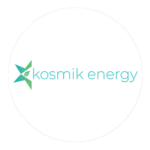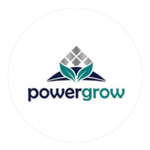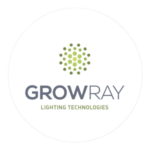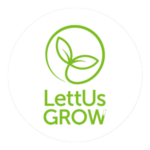Location: Boston, MA
Specialization:
About Freight Farms
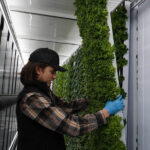

Freight Farms is a Boston-based agtech company whose mission is to build accessible, modular vertical farming technology inside shipping containers that empowers people to grow fresh, hyper-local food in their local communities – wherever that may be.
Company History and Operations
Freight Farms was founded in 2013 by Brad McNamara and Jon Friedman to make local food production scalable and accessible. After exploring rooftop greenhouses, they pivoted to transforming shipping containers into farms, creating a modular solution for growing fresh produce anywhere. In 2013, they launched their first product, the Leafy Green Machine™ (LGM), and have since evolved their flagship offering, the Greenery™, to improve design, efficiency, and sustainability. Today, Freight Farms continues to develop solutions that empower communities to grow fresh, local food in any environment.
Freight Farms Product Offerings: Container Farms
Freight Farms’ primary product line consists of container farms—self-contained growing environments that utilize hydroponics and LED lighting to cultivate crops. The current flagship model is the Greenery™. The Greenery is a 320 square foot shipping container outfitted with advanced climate control, irrigation, and automation systems. It is designed to grow a wide variety of crops, including leafy greens, herbs, and small root vegetables, in a vertical, hydroponic setup. Additionally, the container farms are built to be stackable and modular, allowing for scalability as the farming operation grows.
Cloud-based farm automation software, farmhand® is installed with each container farm. It allows farmers to monitor and control their farm remotely. This software provides operators insights into crop performance, environmental conditions, and system health, enabling efficient farm management and data-driven decision-making.
Crops Grown in Freight Farms
The Greenery container farms are designed to support the growth of over 500 crop varieties. The most common crops include lettuce and leafy greens such as lettuce, kale, and arugula, herbs like basil, mint, and cilantro, as well as flowers, small root vegetables, and more. The hydroponic system used in the container farms allows for faster growth cycles and higher yields compared to traditional farming methods. The controlled environment also ensures consistent quality and reduces the risk of pests and diseases.
Funding and Financials
Freight Farms has raised $43 million in external funding as of September 2023, according to company releases. This includes investments from firms such as Spark Capital, Stage 1 Ventures, and S2G Ventures. The company’s largest investor is Ospraie Ag Science.
In 2023, the Company announced a proposed merger with Agrinam Acquisition Corp, a special purpose acquisition company (SPAC). A SPAC is a company created specifically to raise capital through an initial public offering (IPO) for the purpose of acquiring or merging with an existing company. This merger would have allowed Freight Farms to become a publicly traded company. The two companies mutually agreed to terminate their business combination agreement on September 19, 2024.
Freight Farms secured a $500,000 loan from Lexington Capital on May 3, 2024, to provide additional liquidity for its operations.
Revenue in the first half of 2023 (the most recent available) was $6.1 million, with a net loss of $5.7 million.
Customer Base and Use Cases
In 2023, the company reported that it had deployed over 500 farms globally. Educational institutions like Stony Brook University use the Greenery S for research and teaching purposes, providing students with hands-on experience in sustainable agriculture. Corporations, such as Google and Sodexo, have integrated Freight Farms units into their campuses to provide fresh, locally grown produce for their employees and reduce their carbon footprint. In addition, community organizations and small businesses use Freight Farms to enhance food security and support local food economies.
Freight Farms Management Team
Freight Farms is led by a seasoned management team with experience in technology, agriculture, and business development. Brad Griffith was appointed CEO of Freight Farms in October 2024, bringing extensive experience in agriculture and life sciences to the vertical farming company. Prior to joining Freight Farms, Griffith served as Chief Commercial Officer at Compass Minerals, where he led global plant nutrition and salt businesses, as well as oversaw research and development and supply chain operations. He also spent over 17 years at Monsanto Company, working in both agriculture and pharmaceuticals. Griffith’s background includes accelerating startups, transforming operations, and growing multibillion dollar businesses. Monalisa Shroff, CFO, is a seasoned finance and operations professional with over 15 years of experience in strategic financial planning, analysis, forecasting, and operations management, drawing expertise from previous roles at Bloomberg and Lettuce Grow. CTO Steve Struebing brings 25 years of experience in product development and engineering leadership at various levels from both AgTech and Telecommunications industries where he has led global teams and improved efficiency through process maturation.
Recent Business Developments
In January 2024, Freight Farms provided an update on its recent business performance and strategic initiatives. The company highlighted a significant expansion in its customer base within the education and corporate sectors. Additionally, the Company announced a 20% reduction in operating costs for the Greenery S model, achieved through improvements in energy efficiency and system optimization. The company also noted strong interest from international markets, particularly in Europe and Asia. Freight Farms continues to enhance its farmhand® software, adding new features that provide more detailed data analytics and predictive insights.
Images courtesy of Freight Farms. None of the above constitutes investment advice.
Sources
- Freight Farms Official Website - Company Overview
- Freight Farms Official Website - Greenery S Product Details
- Freight Farms Official Website - farmhand® Software
- Freight Farms Official Website - Crops Information
- Freight Farms - Letter of Intent with Agrinam Acquisition Corp
- SEDAR+ - Freight Farms Financial Disclosures
- Freight Farms Official Website - Customer Case Studies
- Freight Farms Official Website - Corporate Use Cases
- Freight Farms Q4 2023 Business Update
- Freight Farms Financial and Strategic Updates - January 2024
- SEDAR+ Material Change Report - Lexington Capital Loan Agreement, May 13, 2024


